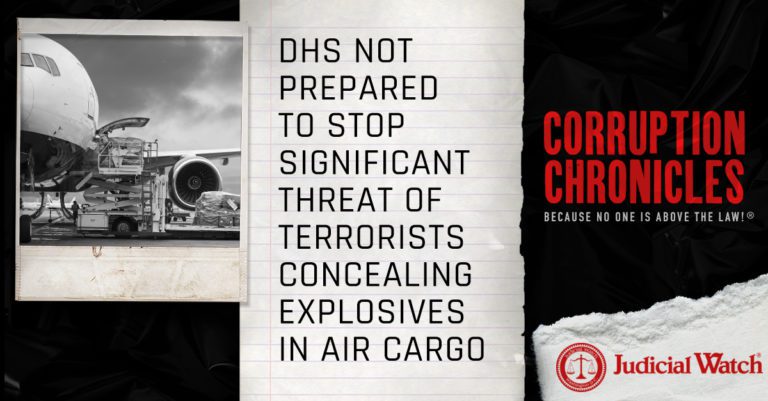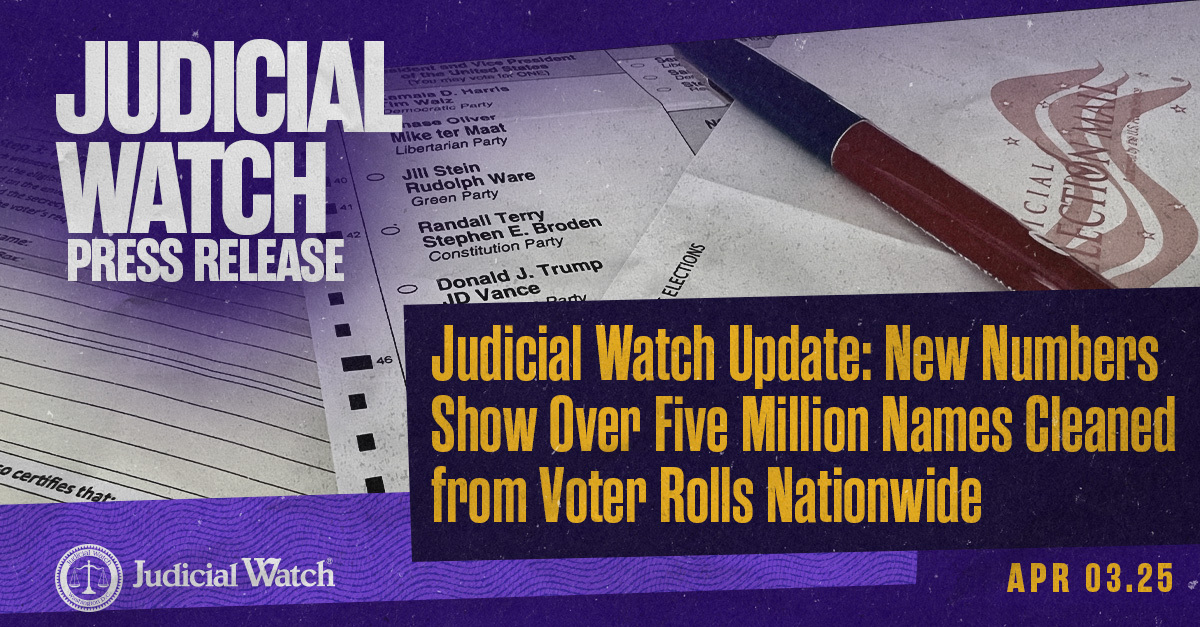
DHS Not Prepared to Stop Significant Threat of Terrorists Concealing Explosives in Air Cargo

In a disturbing admission, the Department of Homeland Security (DHS) reveals the threat posed by terrorists attempting to conceal explosives in air cargo shipments is “significant” and the agency is not prepared to stop it. The disclosure comes more than a decade after Al Qaeda tried to blow up a passenger airplane with explosives hidden in printer cartridges on a U.S.-bound flight from Yemen. The bombs traveled on several freight and passenger planes before being defused. They were bound for Chicago, but federal authorities believe terrorists planned to detonate the bombs mid-air using cell phone timers.
The incident supposedly motivated the DHS agency responsible for securing the nation’s aviation system, the Transportation Security Administration (TSA), to enhance security but evidently that has not materialized. The threat of explosives making it to the U.S. in air cargo is significant, according to a federal audit that reminds the nation that years after the Chicago-bound explosives from Yemen terrorists shipped partially assembled bomb components from Turkey to Australia with plans to detonate the device on a passenger flight. That was in 2017 when about 13 billion pounds of cargo was transported to the U.S. by aircraft, according to the report, published by the investigative arm of Congress, the Government Accountability Office (GAO). “The air transportation industry forecasts that worldwide air cargo volume will grow by approximately 13 percent in 2021,” the report states. The cargo includes items such as electronic equipment, clothing, medical supplies, automobile parts, fresh produce, and flowers.
That means the threats will also increase and the TSA is ill prepared based on the GAO’s findings. The agency uses X-ray technology, computed tomography (CT), that produces images of parcels to screen air cargo for signs of explosives. Congressional investigators found alarming weaknesses in the TSA’s analysis of the imaging technology, writing in their report that the agency’s assessment “did not fully meet three of five key design and evaluation practices.” TSA relies on image quality testing by using a manufacturer’s test kit to compare the system’s performance and essentially the GAO determined the test kits were not always reliable in detecting explosives. “TSA did not incorporate other key practices, such as collecting all necessary data about the system’s ability to detect threats (probability of detection) in the field, consistent with TSA’s standards,” the GAO report states.
The public will never know the full extent of the problem because the 85-page document is a watered down version of a “sensitive report” that “must be protected from public disclosure.” Therefore, the public version omits “sensitive information” regarding foreign international airports analyzed, security-related vulnerabilities identified by TSA at foreign airports worldwide, U.S. and foreign-flagged air carriers contacted by congressional investigators, TSA field offices that work with flagged air carriers, and risk assessment goals DHS uses to identify high-risk U.S.-bound air cargo shipments. “Although we have omitted such sensitive information, this report addresses the same objectives—identified above—as the sensitive report and uses the same methodology,” the GAO writes.
Created after the 9/11 terrorist attacks to protect the nation’s transportation system, the TSA’s transgressions have been well documented over the years. For nearly a decade Judicial Watch has reported extensively—and uncovered records—involving the TSA’s failure to adequately fulfill its mission. This includes missing guns and bombs during covert exercises known as “red team tests,” TSA agents literally sleeping on the job and stealing from passengers, the failure to properly screen luggage and a number of other violations that have risked the nation’s safety. Records obtained by Judicial Watch a few years ago show hundreds of badges that allow agents to access secure areas of airports went missing along with uniforms and other devices used to control entry. In 2018 a bipartisan congressional investigation found that persistent misconduct by TSA managers often goes unpunished and whistleblowers who report it as well as airport safety risks are penalized by senior officials.
Earlier this year a federal audit disclosed that nearly 2 million workers with unescorted access to security restricted areas at airports throughout the U.S. could pose an “insider threat” as the TSA studies how to curb the risk. The agency is supposed to submit a plan to Congress examining the cost and feasibility of enhanced worker screening measures at American airports but apparently cannot handle the task.
















